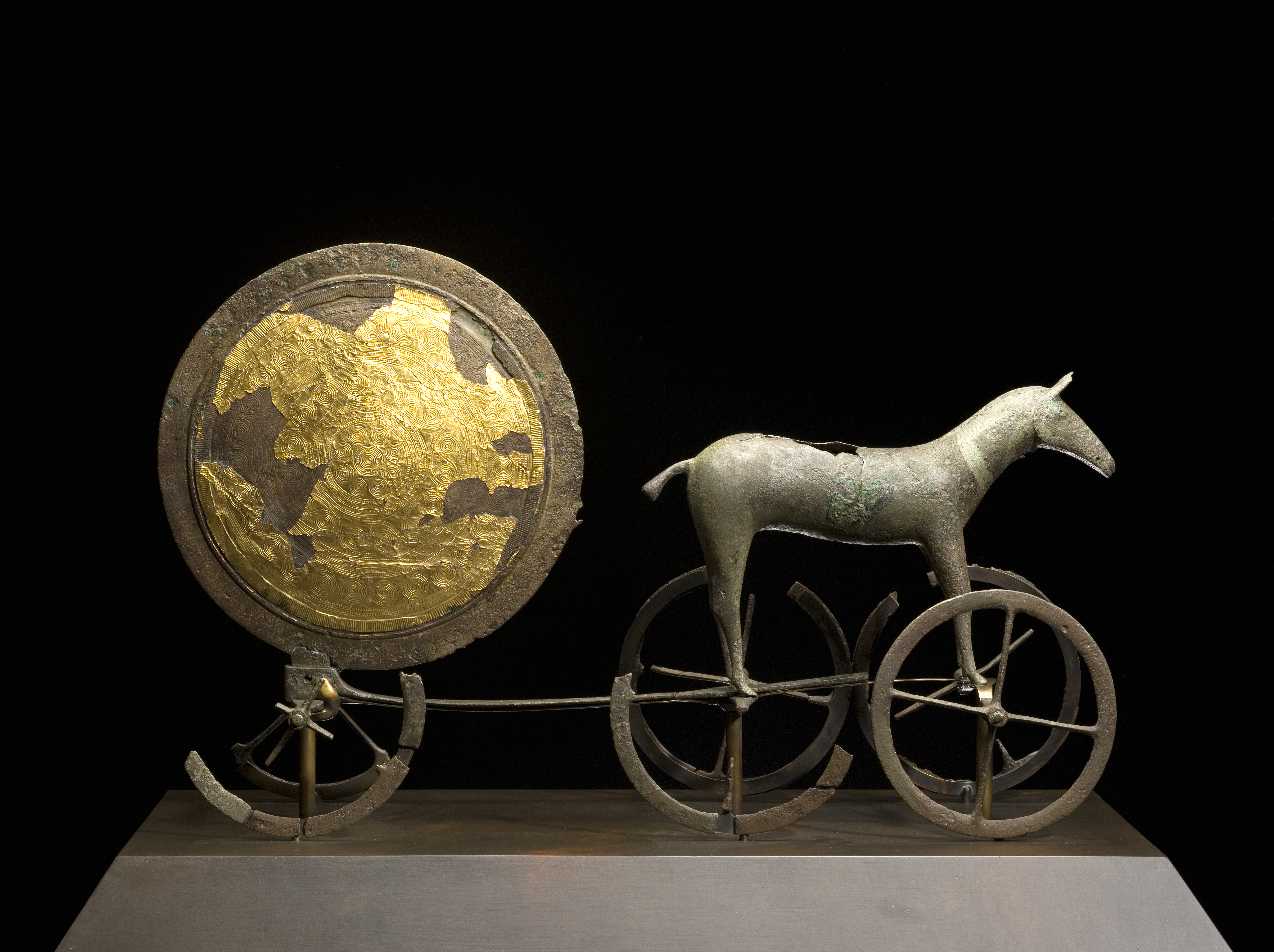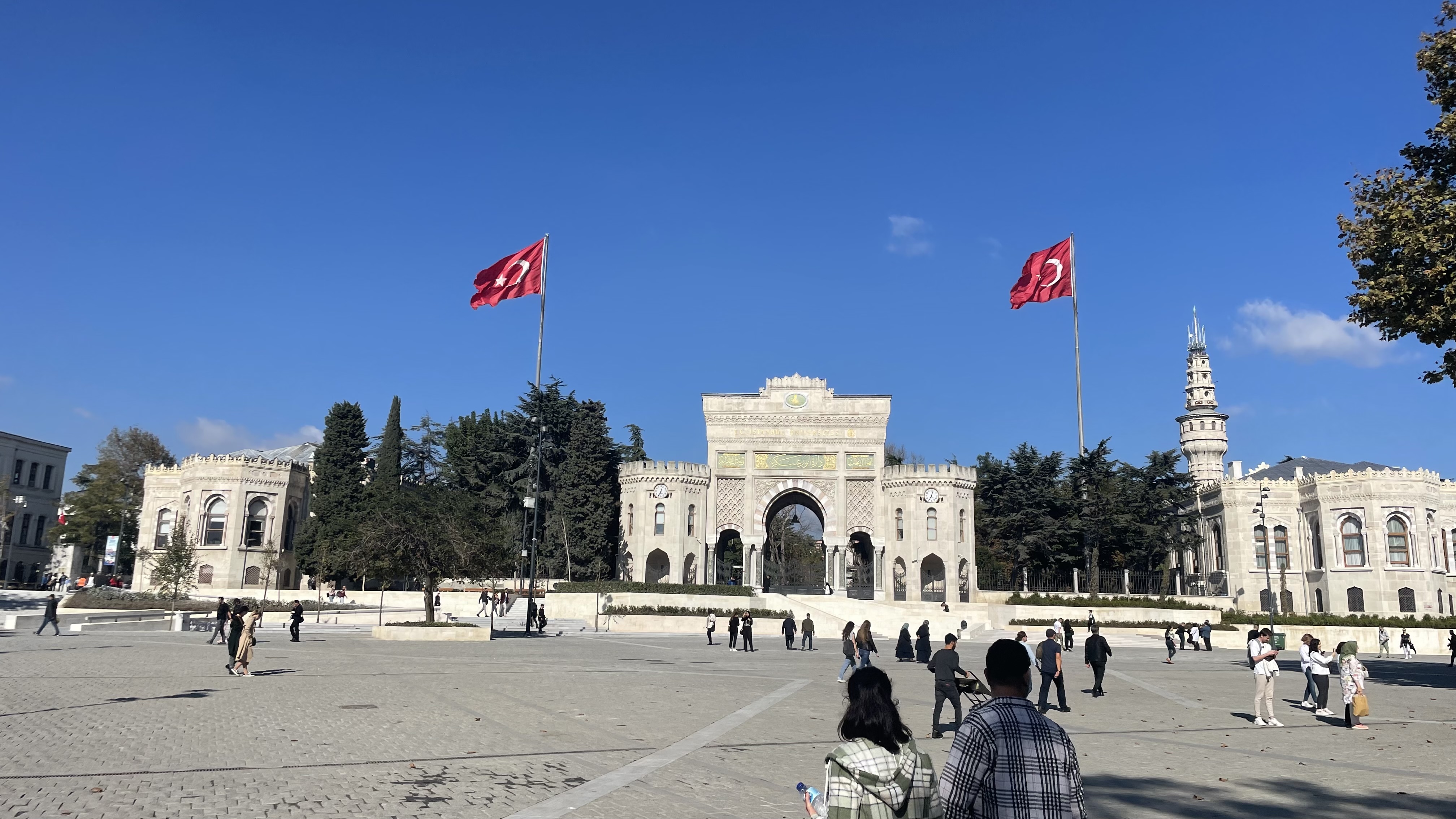|
Georges Dumézil
Georges Edmond Raoul Dumézil (4 March 189811 October 1986) was a French philologist, linguist, and religious studies scholar who specialized in comparative linguistics and mythology. He was a professor at Istanbul University, École pratique des hautes études and the Collège de France, and a member of the Académie Française. Dumézil is well known for his formulation of the trifunctional hypothesis on Proto-Indo-European mythology and society. His research has had a major influence on the fields of comparative mythology and Indo-European studies. Early life and education Georges Dumézil was born in Paris, France, on 4 March 1898, the son of Jean Anatole Jean Dumézil and Marguerite Dutier. His father was a highly educated general in the French Army. Dumézil received an elite education in Paris at the Collège de Neufchâteau, Lycée de Troyes, Lycée Louis-le-Grand and Lycée de Tarbes. He came to master Ancient Greek and Latin at an early age. Through the influence of ... [...More Info...] [...Related Items...] OR: [Wikipedia] [Google] [Baidu] |
Émile Benveniste
Émile Benveniste (; 27 May 1902 – 3 October 1976) was a French structural linguist and semiotician. He is best known for his work on Indo-European languages and his critical reformulation of the linguistic paradigm established by Ferdinand de Saussure. Biography Benveniste was born in Aleppo, Aleppo Vilayet, Ottoman Syria to a Sephardi family. His father sent him to Paris to undertake rabbinical studies, but he left the Rabbinical School after receiving his baccalauréat, and enrolled in the École pratique des hautes études. There he studied under Antoine Meillet, a former student of Saussure, and Joseph Vendryes, completing his degree in 1920. He would return to the École pratique des hautes études in 1927 as a director of studies, and would receive his doctorate there in 1935, with his major thesis on the formation of noun roots, and his secondary thesis on the Avestan infinitive. Following Meillet's death in 1936, he was elected to the Chair of Comparative Grammar ... [...More Info...] [...Related Items...] OR: [Wikipedia] [Google] [Baidu] |
Werner Betz
Werner August Josef Betz (1 September 1912 – 13 July 1980) was a German philologist who was Chair of German and Nordic Philology at Ludwig Maximilian University of Munich. Biography Werner Betz was born in Frankfurt, Germany on 1 September 1912. He gained a PhD in 1936 with a dissertation on Latin influence on Germanic. From 1937 to 1940, with a grant from the Deutsche Forschungsgemeinschaft, Betz was a research assistant of Theodor Frings. He served in the Kriegsmarine during World War II. After the war, Betz became Chair of German and Nordic Philology at Ludwig Maximilian University of Munich. He died in Munich on 13 July 1980. Betz was considered an expert on Germanic Antiquity. His writings on Germanic mythology were influenced by the theories of Georges Dumézil. Selected works * ''Der Einfluss des Lateinischen auf den althochdeutschen Sprachschatz. 1: Der Abrogans'', 1936 * ''Deutsch und Lateinisch: die Lehnbildungen der althochdeutschen Benediktinerregel'', 1949 * (Publ ... [...More Info...] [...Related Items...] OR: [Wikipedia] [Google] [Baidu] |
Gabriel Turville-Petre
Edward Oswald Gabriel Turville-Petre (25 March 1908 – 17 February 1978) was an English philologist who specialized in Old Norse studies. Born at Bosworth Hall, Leicestershire to a prominent Roman Catholic family, Turville-Petre was educated in English at the University of Oxford under the tutelage of J. R. R. Tolkien. He eventually became Professor of Ancient Icelandic Literature and Antiquities at the University of Oxford and a leading member of the Viking Society for Northern Research. He was the husband of fellow philologist Joan Turville-Petre, who was a scholar of Anglo-Saxon and Old Norse studies at Oxford. Turville-Petre was the author of numerous works on Old Norse literature and religion which have remained influential up to the present day. Early life Gabriel Turville-Petre was born at his family's ancestral home of Bosworth Hall, Husbands Bosworth, Leicestershire on 25 March 1908. He was the youngest of the five children of Lieutenant-Colonel Oswald Henry ... [...More Info...] [...Related Items...] OR: [Wikipedia] [Google] [Baidu] |
Claude Lévi-Strauss
Claude Lévi-Strauss (, ; 28 November 1908 – 30 October 2009) was a French anthropologist and ethnologist whose work was key in the development of the theories of structuralism and structural anthropology. He held the chair of Social Anthropology at the Collège de France between 1959 and 1982, was elected a member of the Académie française in 1973 and was a member of the School for Advanced Studies in the Social Sciences in Paris. He received numerous honors from universities and institutions throughout the world. Lévi-Strauss argued that the "savage" mind had the same structures as the "civilized" mind and that human characteristics are the same everywhere. These observations culminated in his famous book ''Tristes Tropiques'' (1955) that established his position as one of the central figures in the structuralist school of thought. As well as sociology, his ideas reached into many fields in the humanities, including philosophy. Structuralism has been defined as "t ... [...More Info...] [...Related Items...] OR: [Wikipedia] [Google] [Baidu] |
Mircea Eliade
Mircea Eliade (; – April 22, 1986) was a Romanian historian of religion, fiction writer, philosopher, and professor at the University of Chicago. He was a leading interpreter of religious experience, who established paradigms in religious studies that persist to this day. His theory that '' hierophanies'' form the basis of religion, splitting the human experience of reality into sacred and profane space and time, has proved influential.Wendy Doniger, "Foreword to the 2004 Edition", Eliade, ''Shamanism'', p. xiii One of his most instrumental contributions to religious studies was his theory of ''eternal return'', which holds that myths and rituals do not simply commemorate hierophanies, but, at least in the minds of the religious, actually participate in them. His literary works belong to the fantastic and autobiographical genres. The best known are the novels '' Maitreyi'' ('La Nuit Bengali' or 'Bengal Nights'), '' Noaptea de Sânziene'' ('The Forbidden Forest'), ''Isa ... [...More Info...] [...Related Items...] OR: [Wikipedia] [Google] [Baidu] |
Trifunctional Hypothesis
The trifunctional hypothesis of prehistoric Proto-Indo-European society postulates a tripartite ideology ("''idéologie tripartite''") reflected in the existence of three classes or castes— priests, warriors, and commoners (farmers or tradesmen)—corresponding to the three functions of the sacral, the martial and the economic, respectively. The trifunctional thesis is primarily associated with the French mythographer Georges Dumézil, who proposed it in 1929 in the book ''Flamen-Brahman'', and later in ''Mitra-Varuna''. Three-way division According to Georges Dumézil (1898–1986), Proto-Indo-European society had three main groups, corresponding to three distinct functions:Dumézil, G. (1929). ''Flamen-Brahman''.Dumézil, G. (1940). ''Mitra-Varuna'', Presses universitaires de France. * Sovereignty, which fell into two distinct and complementary sub-parts: ** one formal, juridical and priestly but worldly; ** the other powerful, unpredictable and priestly but rooted ... [...More Info...] [...Related Items...] OR: [Wikipedia] [Google] [Baidu] |
Proto-Indo-European Society
Proto-Indo-European society is the reconstructed culture of Proto-Indo-Europeans, the ancient speakers of the Proto-Indo-European language, ancestor of all modern Indo-European languages. Scientific approaches Many of the modern ideas in this field involve the unsettled Indo-European homeland debate about the precise origins of the language itself. There are four main approaches researchers have employed in their attempts to study this culture: *Historical linguistics (especially comparative linguistics): interpretations based on the reconstruction and identification of words and formulae (those cited ''*thus'' on this page, with a preceding asterisk) which formed part of the vocabulary of the Proto-Indo-European language. These are reconstructed on the basis of sound laws and shared grammatical structures; the definitions hereunder given for the roots should be read as "connotations" (the concepts associated with a word that were inherited in the daughter languages), close to ... [...More Info...] [...Related Items...] OR: [Wikipedia] [Google] [Baidu] |
Proto-Indo-European Mythology
Proto-Indo-European mythology is the body of myths and deities associated with the Proto-Indo-Europeans, the hypothetical speakers of the reconstructed Proto-Indo-European language. Although the mythological motifs are not directly attested – since Proto-Indo-European speakers lived in preliterate societies – scholars of comparative mythology have reconstructed details from inherited similarities found among Indo-European languages, based on the assumption that parts of the Proto-Indo-Europeans' original belief systems survived in the daughter traditions. The Proto-Indo-European pantheon includes a number of securely reconstructed deities, since they are both cognates – linguistic siblings from a common origin –, and associated with similar attributes and body of myths: such as *''Dyḗws Ph₂tḗr'', the daylight-sky god; his consort *''Dʰéǵʰōm'', the earth mother; his daughter *''H₂éwsōs'', the dawn goddess; his sons the Divine Twins; and ''*Seh₂ul' ... [...More Info...] [...Related Items...] OR: [Wikipedia] [Google] [Baidu] |
Collège De France
The Collège de France (), formerly known as the ''Collège Royal'' or as the ''Collège impérial'' founded in 1530 by François I, is a higher education and research establishment ('' grand établissement'') in France. It is located in Paris near La Sorbonne. The Collège de France is considered to be France's most prestigious research establishment. Research and teaching are closely linked at the Collège de France, whose ambition is to teach "the knowledge that is being built up in all fields of literature, science and the arts". It offers high-level courses that are free, non-degree-granting and open to all without condition or registration. This gives it a special place in the French intellectual landscape. Overview The Collège is considered to be France's most prestigious research establishment. As of 2021, 21 Nobel Prize winners and 9 Fields Medalists have been affiliated with the Collège. It does not grant degrees. Each professor is required to give lectures where ... [...More Info...] [...Related Items...] OR: [Wikipedia] [Google] [Baidu] |
École Pratique Des Hautes études
The École pratique des hautes études (), abbreviated EPHE, is a Grand Établissement in Paris, France. It is highly selective, and counted among France's most prestigious research and higher education institutions. It is a constituent college of the elite Université PSL (together with ENS Ulm, Paris Dauphine or Ecole des Mines). Its degrees in religious studies and in history count among the best in the world. Closely linked to École française d'Extrême-Orient and Institut français du Proche-Orient, EPHE has formed continuously world-class experts in Asian and Islamic studies and among them investment bankers, diplomat and military officers specialized in these areas. Particularly, leading researchers in military strategy have taught in EPHE for more than a century, such as, by example, Hervé Coutau-Bégarie. Moreover, famous researchers in natural sciences (especially neurosciences and chemistry) teach and taught in EPHE (among them Jean Baptiste Charcot and Mar ... [...More Info...] [...Related Items...] OR: [Wikipedia] [Google] [Baidu] |
Istanbul University
, image = Istanbul_University_logo.svg , image_size = 200px , latin_name = Universitas Istanbulensis , motto = tr, Tarihten Geleceğe Bilim Köprüsü , mottoeng = Science Bridge from Past to the Future , established = 1453 1846 1933 , type = Public university Research university , rector = Prof. Dr. Mahmut Ak , students = 69,411 , undergrad = 51,714 , postgrad = 16,669 , academic_staff = 4,101 , city = Istanbul , country = Turkey , campus = Beyazıt CampusVezneciler CampusAvcılar CampusÇapa CampusKadıköy Campus , coor = , colors = Green Yellow , affiliations = Coimbra Group EUA UNIMED , website = , free_label = Founder , free = Mehmed II Istanbul University ( tr, İstanbul Üniversitesi) is a prominent public research university located in Istanbul, Turkey. Founded by Mehmed II on May 30, 1453, a day after the conquest of Constantinople by the Turks, it was reformed in 1846 as the first Ottoman higher education institution based on Europ ... [...More Info...] [...Related Items...] OR: [Wikipedia] [Google] [Baidu] |


.jpg)





